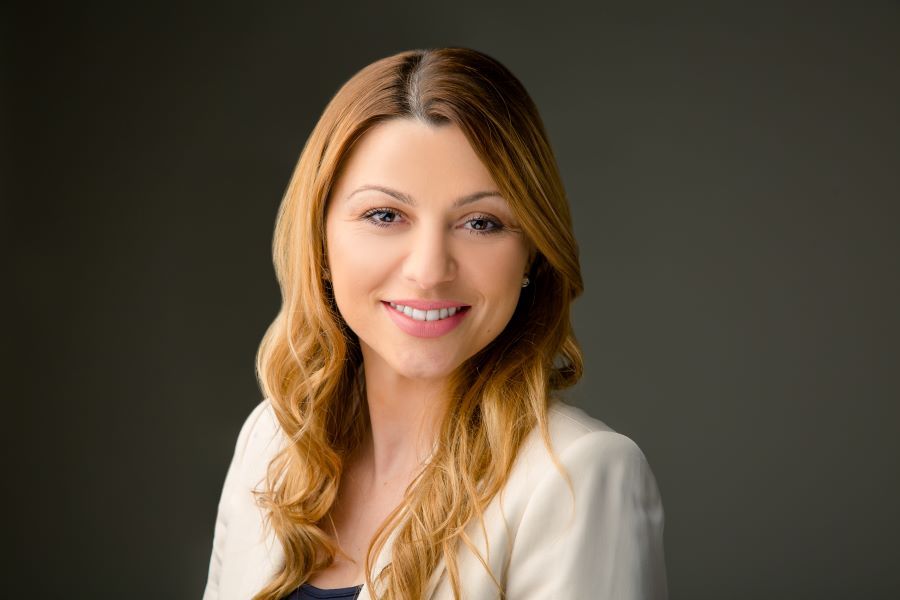Venture creation, the new VC

Investment across the Middle East and North Africa (Mena) is becoming more sophisticated. The growth in the number of venture capital (VC) firms and funds keen to tap into promising startups has resulted in greater competition for high quality pipeline.
This has put pressure on investors to offer more than just capital, and so some have evolved from being venture capitalists into venture creators.
One such venture creation company is UAE-based Millennial Capital (MC), founded by Andreaa Danila back in 2016. Focused on Mena, MC invests in a partnership model with global emerging beauty and cosmetics brands in the consumer sector and launches their operations in the region.
It is a similar model to Germany’s Rocket Internet, but instead of copying business models that have seen success globally, MC takes already established businesses and co-invests with them to develop a “local market leadership” for them. Its fund is valued at $10 million with MC looking to raise another $7 million to accelerate its growth.
How does MC differ from the traditional venture capital model?
It is a venture creation and management fund, our core strategy is to develop outstanding local ventures. We partner with some of the largest consumer product companies worldwide and develop local efforts. Our team does the opportunity search, developing the team, testing the concept and setting up. These partnerships are the business and the operating model of the venture concept itself.
Our strategy was endorsed by Brazilian beauty giant O Boticário, a $44 billion company, they chose up to launch and develop all their GCC operations. We set up the online and offline channels, developed a fully independent management team, operations, sales and logistics. Now we’re really pushing ourselves to make it one of the top beauty brands in the region. We have product launches specific to the region, we localise in marketing and digitising the approach.
It’s a matter of managing risk in a new venture and scalability of a new region. Our sales pitch is we can take the learnings in certain elements of success, localise and digitise to accelerate growth. Managing the failure rate is really critical, venture really needs to come and support the business as opposed to with just capital. We want to replicate this into many others. We are now looking at our second category which is personal accessories.
Why did you decide to focus on the beauty sector?
We wanted to have a focus and only do ventures in consumer products, so we drilled down into subcategories. We looked at the millennial demographic, the spending power and age groups in the GCC. The most attractive consumer market was the beauty, personal accessory and beauty tech and consumer health space.
The beauty industry is growing at 8.5 per cent CAGR in GCC, it is growing faster than healthcare. Beauty spending is three times higher in the Middle East when compared to the rest of the world. The Saudi Arabian consumer is consuming up to eight times more fragrance than the rest of the world.
So we started putting together a venture concept model – millennial beauty. We set up online and offline channels an developed a fully independent management team, operations, sales and logistics.
Social media influencers have changed the consumer industry, how has it impacted the beauty sector specifically?
The time it takes for brands like Huda Beauty and Kylie Cosmetics to take a product from design and concept to the consumer is six days. They develop the product, take it to Instagram and sell. Six days is something [France-based beauty conglomerate] L’Oreal can’t beat.
Large beauty brands are super regulated, they have lots of policies, the design process and when they launch something has to be a cycle. In the future the beauty industry will totally bet on brands created by influencers. We are looking at the next influencers to develop their brand. That will the future, consumers are very demanding, they have no time to wait for the following seasons, they want it now and they want to see that influencer wearing it on social media.
How else has social media impacted consumer choice?
It’s a tough industry, you have to be fast, it is probably one of the most dynamic industries. The trends change very quickly, you need to scale and your marketing budget has to be super smart. Today to launch a brand, you still need an omni-channel approach in key malls. People come and experience our brands and have the option to buy instore or online. We partner with e-commerce players and we also look at traditional models of distribution. We are not saying malls won’t exist in the future, but they’re evolving, they’re integrating there is now click and collect and the consumer is being entertained instore. Social media for us is key, it helps with brand awareness and marketing. Eighty-three per cent of all purchases happen in malls in the UAE and 73 per cent of those purchases are influenced by social media.
Personalisation is also very important, it is needed in the way we construct the points of touch. We can no longer look at the store and online model. We see that it’s super important to bring technology into the retail concept.


